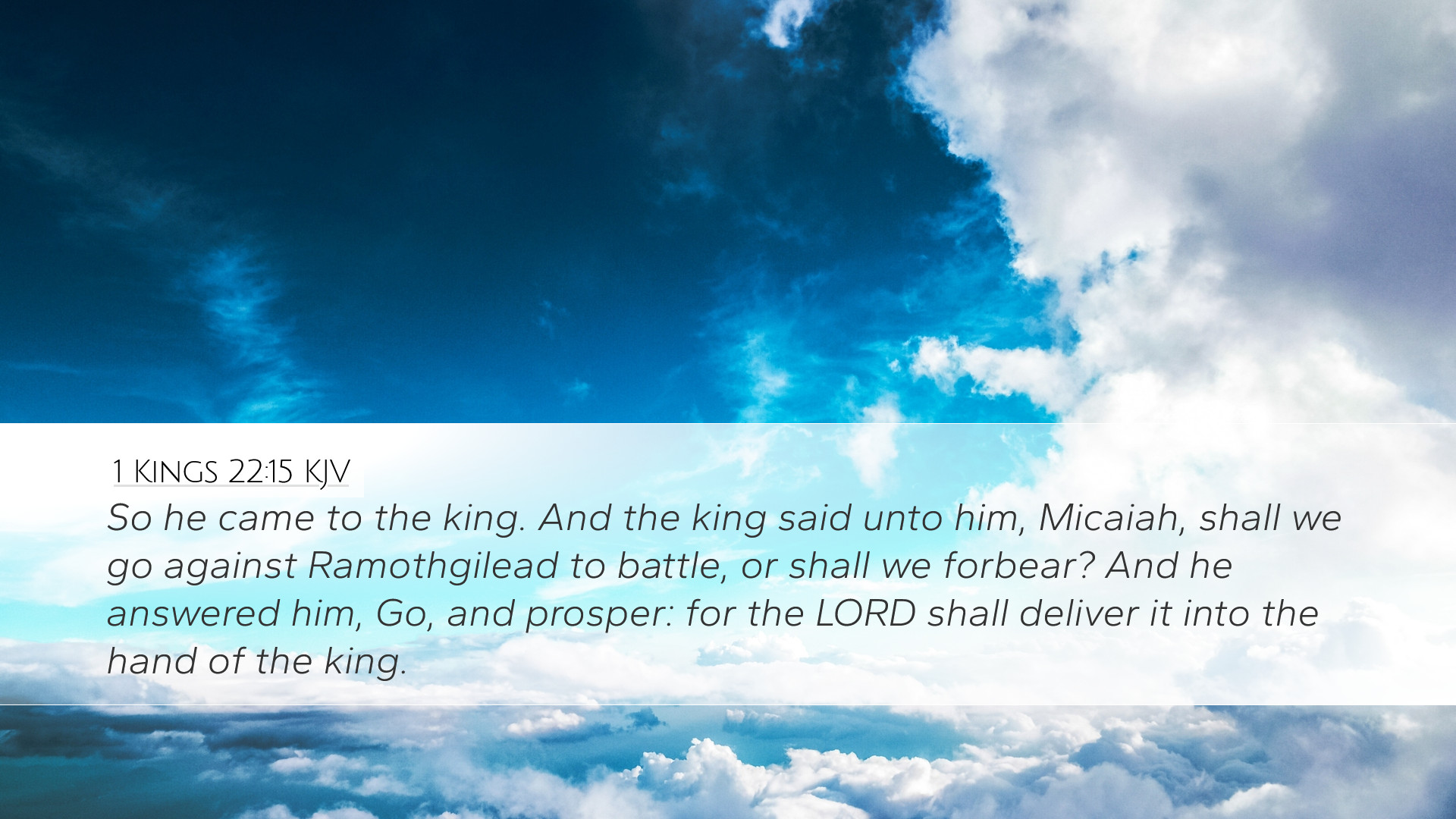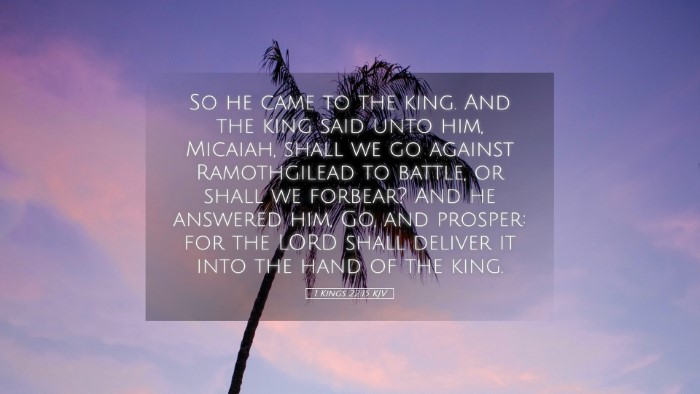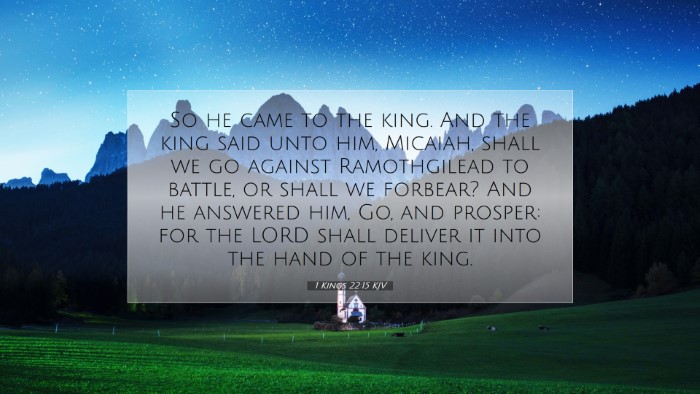1 Kings 22:15 - Commentary
Verse: "So he came to the king. And the king said to him, 'Micaiah, shall we go to Ramoth Gilead to battle, or shall we refrain?' And he said, 'Go and prosper, for the Lord will deliver it into the hand of the king.'"
Contextual Background
The background of this passage is critical for a complete understanding. In 1 Kings 22, we see King Ahab of Israel seeking counsel from the prophet Micaiah regarding a military campaign against the city of Ramoth-Gilead. Ahab has already consulted other prophets, receiving a favorable prophecy, yet he persists in seeking more input, perhaps hoping for reassurance.
Micaiah's Prophetic Role
Insights from Matthew Henry: Micaiah's role underscores the importance of genuine prophecy. Unlike Ahab’s other prophets, who were influenced by the king’s desires, Micaiah represents the true voice of God. He is a crucial figure in countering the false assurances presented to Ahab. Henry suggests that genuine prophets often face hostility and rejection, highlighting Micaiah’s integrity in delivering God’s word despite the risks involved.
Observations from Albert Barnes: Micaiah's calm demeanor in presenting a deceptive answer reflects a divine strategy. Though he initially says, 'Go and prosper,' this is interpreted as sarcasm, emphasizing the twisted irony in Ahab’s blind confidence. Barnes points out that Micaiah’s prophecy serves not only as a stark warning but also as a pivotal moment determining the fate of Israel under Ahab’s misguided leadership.
Reflections from Adam Clarke: Clarke elaborates on the nature of true prophecy versus false prophecy. He suggests that Micaiah's response, while seemingly compliant, ultimately serves to expose the deceit in Ahab’s other prophets. Clarke argues that Ahab’s willingness to heed false prophets rather than the truth emphasizes humanity's tendency to choose comfort over genuine accountability to God.
Literary and Theological Analysis
The text reflects a dual narrative: the political maneuvering of kings and the spiritual truths conveyed through prophetic voices. The event illustrates a critical theological premise: the sovereignty of God in guiding the fate of nations and individuals.
- Divine Sovereignty: The passage illustrates God’s ultimate control over events, even when humans make misguided choices, as seen in Ahab’s pursuit of military gain.
- The Danger of False Counsel: Ahab’s preference for favorable prophecies shows the peril of selective hearing in spiritual matters. It is a cautionary reflection for contemporary believers to discern truth in the midst of prevalent false teachings.
- Integrity of the Prophet: Micaiah serves as a model for those in ministry or spiritual leadership. His commitment to God's word, despite personal risk, underscores the call for integrity among leaders.
The Role of Prophecy in Decision-Making
This passage invites a deeper exploration of how decisions are made in faith communities today. The reliance on prophetic voices serves as both guidance and a test of faith. Ahab’s choice to consult Micaiah ultimately signifies a choice of higher accountability over personal desire.
Application for Leaders and Theologians: The narrative presents a profound reflection for church leaders and scholars. What often appears as mere strategic planning can spiral into spiritual blindness when devoid of divine consultation. Leaders are encouraged to seek God’s wisdom earnestly and to engage sincerely with authentic prophetic voices.
Conclusion
Micaiah’s encounter with King Ahab encapsulates a timeless truth: the necessity of aligning human will with divine purpose. The king’s choice to heed false prophets illustrates the perils of ignoring God’s authentic word, whereas Micaiah’s steadfastness reinforces the call for bravery and pure adherence to the truth in ministry.
The reflections of Henry, Barnes, and Clarke invite contemporary readers to critically evaluate their own spiritual landscapes, urging vigilance against the allure of comforting lies. In this light, 1 Kings 22:15 serves as an enduring lesson on the importance of prophetic integrity, the dangers of misleading counsel, and dependence on God’s sovereign guidance in all decisions.


